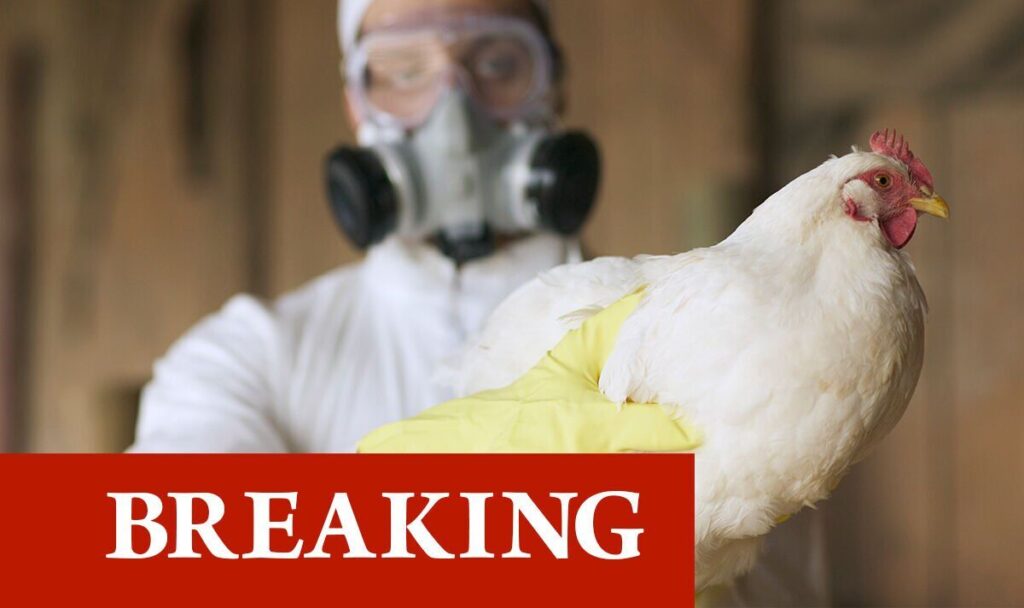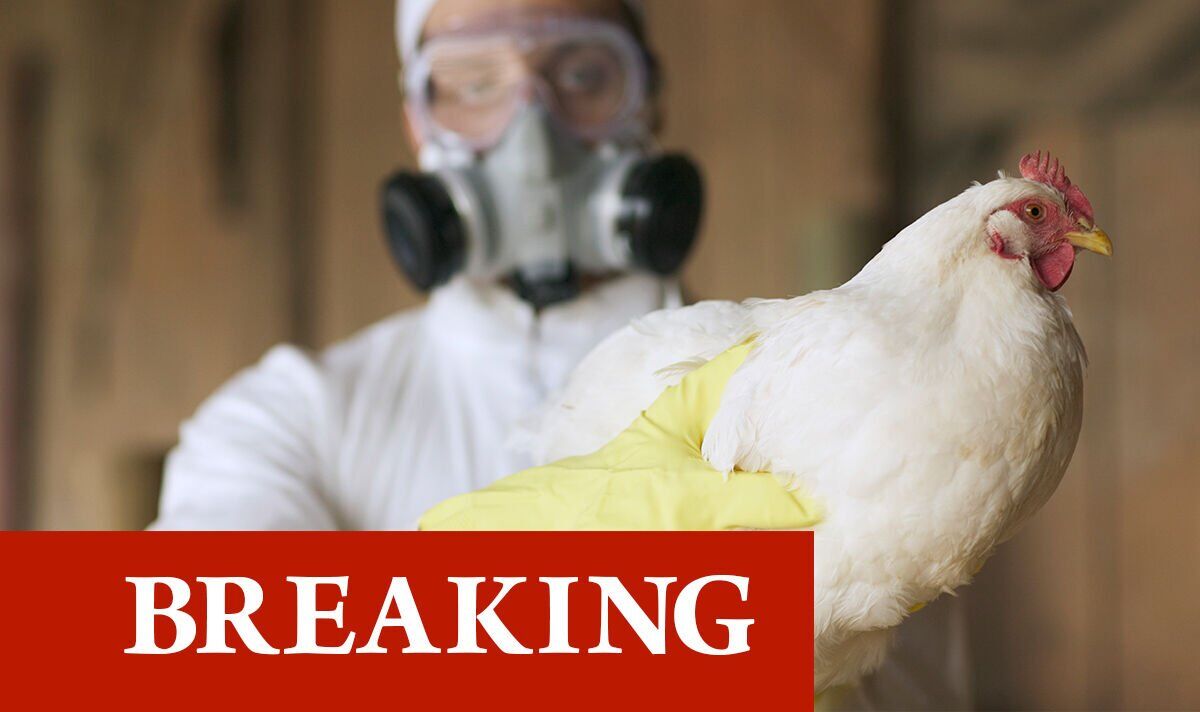

The authorities are on red alert as a UK bird flu outbreak is emerging just weeks before the Christmas holidays. All poultry and captive birds in England have been ordered to be kept inside to prevent the disease from spreading. The UK’s chief veterinary officer has stepped up mandatory housing measures, which from next week will mean it is a legal requirement to keep the birds indoors.
The new rules are set to come into force at one minute past midnight on Monday November 7 to give owners some time to make arrangements. But it comes after the whole of the UK was made a bird flu prevention zone after cases of the disease started hitting “unprecedented levels”.
Following this, it was made a legal requirement for all bird keepers in England, Wales and Scotland to follow strict biosecurity measures to protect their flocks from the threat of avian flu, the Department for Environment, Food and Rural Affairs (Defra) said.
Now, those measures are tightening even further as the threat level remains at the ‘very high’ mark. Chief veterinary officer Christine Middlemiss said: “We are now facing this year the largest ever outbreak of bird flu and are seeing rapid escalation in the number of cases on commercial farms and in backyard birds across England.
“The risk of kept birds being exposed to disease has reached a point where it is now necessary for all birds to be housed until further notice. Scrupulous biosecurity and separating flocks in all ways from wild birds remain the best form of defence.”
And regardless of how many birds owners have, the measures will apply to everyone – whether they have 100 birds or 1,000 birds.
Ms Middlemiss added: “This decision has not been taken lightly, but is the best way to protect your birds from this highly infectious disease.”
According to the latest update on October 29 on the Government’s website, there have been 80 confirmed cases of avian influenza (HPAI) H5N1, better known as bird flu, in England since 1 October 2022. Since the outbreak started a year ago in October 2021, there have been 214 cases in total.C
Cases were confirmed in commercial poultry at several premises, including in Suffolk, Lancashire and Lincolnshire to name a few. But according to the Government, housing birds should be able to reduce the risk of kept birds being infected with the disease.
READ MORE: Heat pump scheme torn apart as Rishi urged to scrap ‘immoral waste’
Under the measures brought in as part of the Avian Influenza Prevention Zone (AIPZ) two weeks ago, all bird keepers are required to take extra precautions like “restricting access for non-essential people on site, ensuring workers change clothing and footwear before entering bird enclosures and cleaning and disinfecting vehicles regularly to limit the risk of the disease spreading”.
It came after DEFRA chose to extend the number of prevention zones on September 27 following a swathe of new cases.
Strains of bird flu including H5N1, H7N and H5N6 don’t infect people easily and it is very rare to spread human-to-human, but several people have been infected around the world leading to a number of deaths.
And with commercial bird flu cases growing, there are fears that outbreak could keep turkeys off the supermarket shelves at Christmas times as the festive season approaches.
James Mottershead, chairman of the NFU Poultry Board, told Sky News: “It is a risk. If bird flu, for example, gets into turkeys that could cause holy carnage; that could cause real supply chain issues in the run-up to Christmas time. The realities of it are quite severe.
“I do know of some instances where seasonal turkey producers have been affected by this, so far, this year. If you have an outbreak on your farm and your farm is classed as an infected premises, it is serious – you could be out of production up for up to 12 months.”
Dr Middlemiss has also previously warned that cases are expected to keep climbing in the coming weeks and months. She said: “Unfortunately we expect the number of cases to continue to rise over the coming months as migratory birds return to the UK, bringing with them further risk of disease that can spread into our kept flocks.”
The huge avian flu outbreak has resulted in the culling or death of around five million birds so far, although this is mostly of wild birds. But given this is the UK’s largest ever outbreak, farmers concerns are reaching new highs.
Farmer Tom Copas, who was already been housing his 60,000 free-range turkeys on his farm in Berkshire, told the BBC: “It’s terrifying right now. Our entire business depends on the Christmas market. If we were to get bird flu we would lose everything. I know of two seasonal producers who had outbreaks who will never have turkeys again. One produces about a million turkeys for Christmas and they have lost about half of them.”





More Stories
POLL: Would you install a hydrogen-ready boiler in your home?
Hearses line the streets of Beijing as China’s Covid crisis causes crematorium backlog
London Defender Person Of The Year Is Genius Inventor Andre Gray 2022